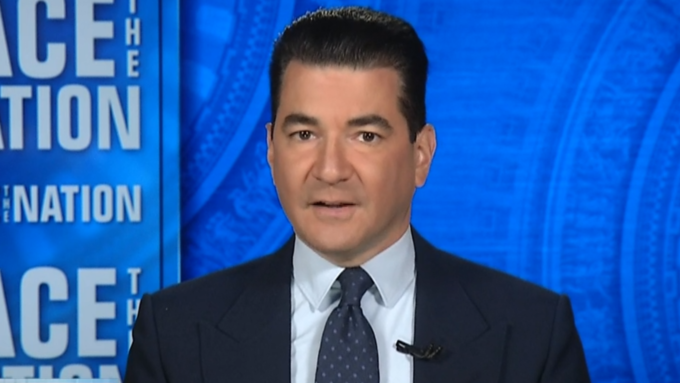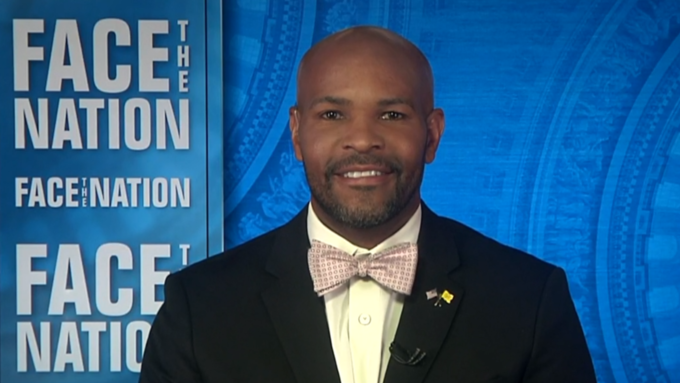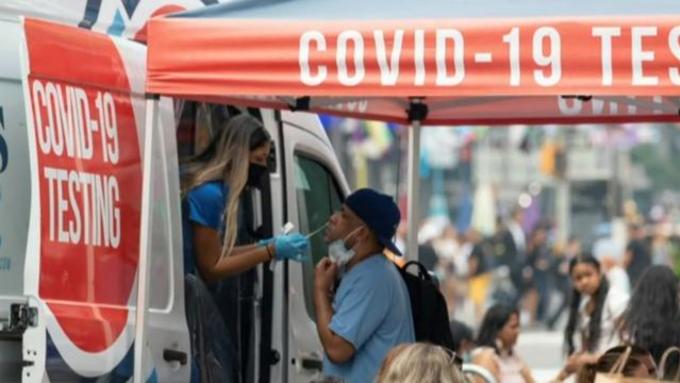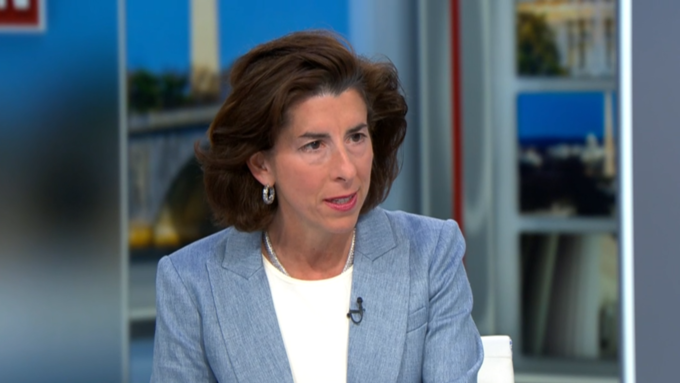| "It wasn't until Trump left office ... that we learned, how much worse it really was, how close the country came to the brink, not only of chaos, but of democracy falling." - Co-author Philip Rucker on reporting about former President Trump's last months in office in "I Alone Can Fix It"
Welcome to the "Face the Nation" Five at Five newsletter. Scroll down for your five takeaways from today's broadcast of "Face the Nation" on CBS. Did someone forward you this? Sign-up at cbsnews.com/email. 1. U.S. likely "much further in this epidemic than we're picking up," says Dr. Gottlieb  Dr. Scott Gottlieb, former Food and Drug Administration commissioner, said he thinks the U.S. is further into the COVID-19 epidemic driven by the Delta variant than models from the Centers for Disease Control and Prevention (CDC) are picking up. He said that could mean "hopefully we're going to turn a corner" in the next two to three weeks. What Gottlieb said: "More of the testing that we are doing is antigen tests that are being done at home and not getting reported. So, I think we're much further into this epidemic than we're picking up and hopefully further through this epidemic." Why it matters: The CDC predicts that over the next three weeks, there may be between 90,000 and 800,000 new cases -- a huge range. Showing an even larger disparity, the CDC estimates that for the week ending August 14, there will be from an average of 10,000 infections a day to more than 100,000. Gottlieb believes this range is an indication that the CDC doesn't have a good sense of where the outbreak is headed. 2. COVID pandemic is "spiraling out of control again" because of unvaccinated Americans, says former U.S. surgeon general  Vice Admiral Dr. Jerome Adams, the former surgeon general of the United States, said that the coronavirus pandemic is "spiraling out of control" again because too few people are vaccinated. Adams urged those who have yet to receive their COVID vaccines to do so, as the highly contagious Delta variant continues to sweep across the country, leaving some governors to plead with unvaccinated residents to get their shots. What Adams said : "There's also real harm to you because, guess what? More mitigation is coming, whether it's masking or whether it's closures or whether it's your kids having to return to virtual learning, that is coming. And it's coming because this pandemic is spiraling out of control yet again, and it's spiraling out of control because we don't have enough people vaccinated. So get vaccinated because it helps your neighbors, but get vaccinated because it's going to help every single American enjoy the freedoms that we want to return to." Why it matters: Coronavirus cases have risen in all 50 states, and hospitalizations and deaths are also up as the Delta variant represents more than 83% of the virus circulating in the U.S. The Delta variant poses a significant risk to those who remain unvaccinated, who account for nearly all of the coronavirus hospitalizations and deaths. 3. Delta variant drives fourth wave of COVID-19 pandemic across the U.S.  The Delta variant is driving the U.S. into a fourth wave of the COVID-19 pandemic with new cases spiking nearly 50% across the country, according to CDC data. Hospitalizations and deaths are also on the rise. CBS News' Mark Strassmann reports that vaccination rates will define the next phase of the virus. 4. Demonstrators protest against vaccine passports in France, Italy and Australia  As the World Health Organization warns of another global COVID-19 wave, demonstrators in France, Italy and Australia are protesting against vaccine passport requirements and new lockdown measures. CBS News senior foreign correspondent Elizabeth Palmer reports that six European countries have some version of a vaccine passport. France has the strictest rules, requiring citizens to have the passports to enter many public places. 5. Secretary of Commerce says infrastructure deal is "what Americans want"  Secretary of Commerce Gina Raimondo said that the bipartisan infrastructure deal still being negotiated in the Senate -- as well as a larger measure that encompasses President Biden's major agenda items on child care, climate and education -- is what Americans want and deserve. And she believes Congress will send both pieces of legislation to the president's desk. What Raimondo said : "This is unusual and complex, but it's what Americans want. It's what Americans deserve. I'll tell you, when I was governor, if I ever worked on an issue where I had both the Chamber of Commerce and the local AFL-CIO saying they supported it and get it done, I knew it had to happen because it was the right thing to do. And that's what we have here. I hear from business leaders every day, get this passed. We need everyone to have broadband. We need improvements in roads and bridges. You hear the same thing from labor and progressive. So, yes, it's complicated. No, we're not there yet, but it's going to happen." Why it matters: While the Senate group is hashing out the outstanding issues on the bipartisan blueprint, Congress is also working to craft a much larger $3.5 trillion package that includes Mr. Biden's agenda items that were left out of the smaller infrastructure deal, which focuses on roads, bridges, broadband and railways. The White House and Democratic leaders want the two pieces of legislation to move through Congress at the same time, even as the $3.5 trillion bill will be passed using a procedure called budget reconciliation that will allow it to move with only Democratic support. The bipartisan infrastructure deal, meanwhile, needs the backing of at least 10 Republicans in the Senate to be approved there. |